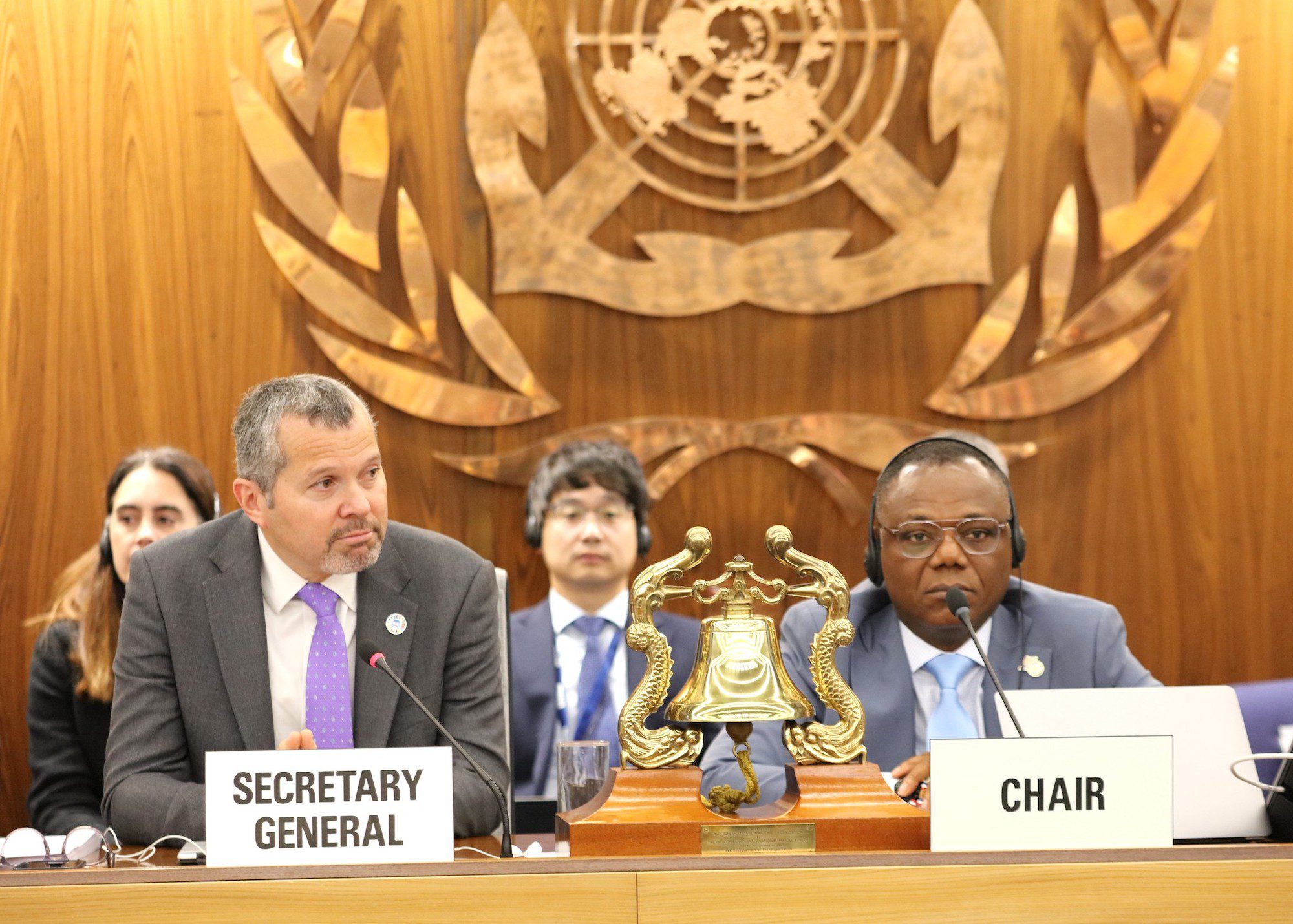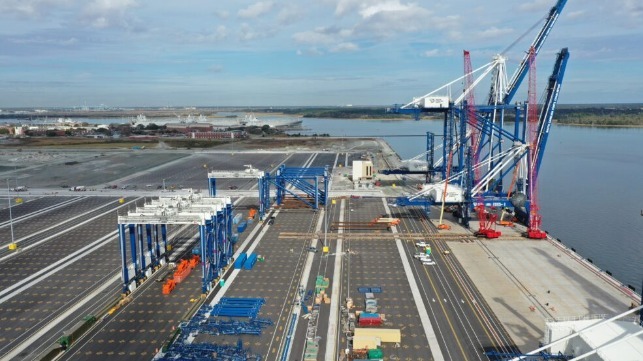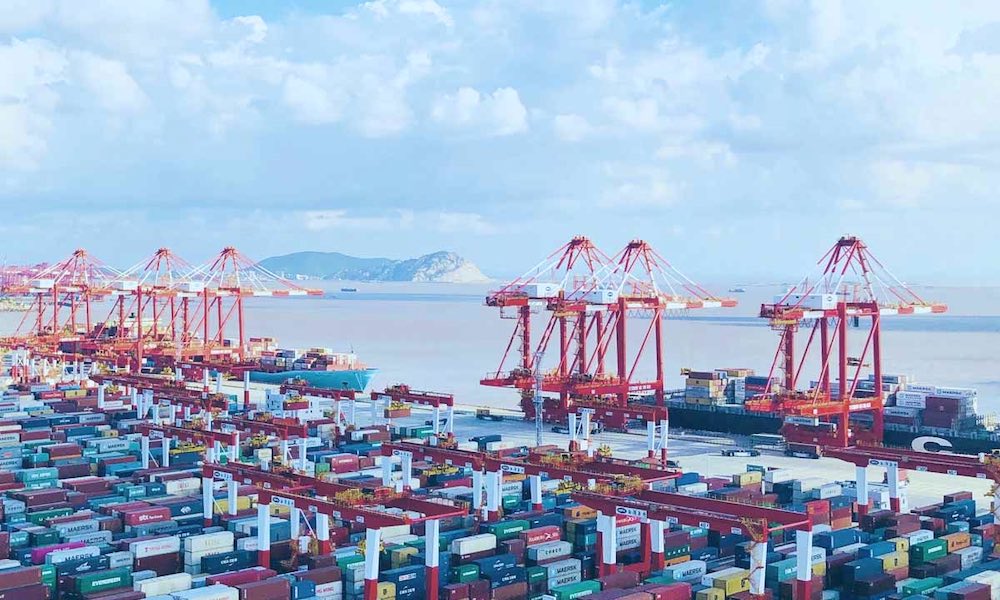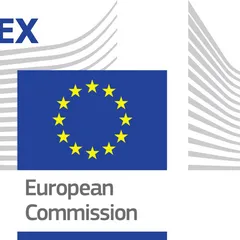IMO DELAYS VOTE ON GLOBAL SHIPPING CARBON TAX BY ONE YEAR AFTER U.S. PRESSURE CAMPAIGN
Governments at the International Maritime Organization decided to postpone for one year the adoption of the world’s first global carbon pricing system on shipping at the Extraordinary Session of the...

Governments at the International Maritime Organization decided to postpone for one year the adoption of the world’s first global carbon pricing system on shipping at the Extraordinary Session of the Marine Environment Protection Committee in London this week.
The IMO agreed to delay the planned adoption vote on the Net-Zero Framework for one year in a vote Friday due to delay tactics and procedural sabotage by the U.S., Saudi Arabia, Russia and other petrostates at this week’s negotiations. The motion to delay was put forward by Singapore and called to a vote by Saudi Arabia.
The IMO’s delay reveals the fragility of climate action when national politics clash with global regulation. For shipping—a sector that moves 90% of world trade and produces 3% of global emissions—the path to net zero just became longer and far more uncertain.
Heading into this week’s meeting, a clear majority of countries had supported the adoption of the Framework, which was agreed in principle in a vote in April. In April, 63 countries voted yes, including the EU27, Brazil, China, India, Canada, UK, Korea and Japan, versus a minority opposition from 16 oil-producing states.
In the lead up and throughout the meeting, the Trump Administration threatened retaliatory tariffs and sanctions, especially on developing and most climate-vulnerable states, if they support the Framework.
According to our sources, the U.S. and Saudi Arabia also tried to create a delay by proposing to change the IMO’s regular adoption process by consensus to an ‘explicit’ adoption process which would impose additional hurdles to enforce the Framework, especially for many developing countries.
Countries ultimately voted to delay adoption of the NZF at MEPC E.2 with 57 countries in favor of delay, 49 countries against the delay, and 21 abstentions.
The agreement would have had a positive effect on the price gap between fossil fuels and alternative fuels, essential for shipping’s energy transition.
As the world’s first, the mechanism would require ships to pay fees for non-compliance with gradually increasing carbon intensity targets, expected to generate up to $15 billion per year in finance from 2030. The original entry into force of the NZF was planned for March 2027. This timeline will now have to be reviewed.
Industry Reactions
Thomas A. Kazakos, ICS Secretary General, said: “We are disappointed that member states have not been able to agree a way forward at this meeting. Industry needs clarity to be able to make the investments needed to decarbonise the maritime sector, in line with the goals set out in the IMO GHG strategy. As an industry we will continue to work with the IMO, which is the best organisation to deliver the global regulations needed for a global industry.”
Jesse Fahnestock, director of decarbonization at the Global Maritime Forum, called the adjournment “a disappointing setback for shipping, but not the end of this journey.”
“We encourage Member States that agreed on the framework in April to re-confirm their commitment to multilateralism and continue the urgent work of developing guidelines and adopting a regulatory framework that can deliver on the IMO’s unanimously agreed Greenhouse Gas Strategy,” Fahnestock added.
Anne H. Steffensen, CEO of Danish Shipping, said: “This is not what we came for. We came here to finally conclude a crucial climate agreement for international shipping. We from the Danish side have worked tirelessly towards this for a long time, so it’s a big disappointment.”
Steffensen added: “Much has happened in the world since 2023, when the framework for the strategy was adopted. Unfortunately, that means there have been all sorts of other agendas in the negotiation room besides climate. Geopolitical tensions and a new world order have made their way in – also at the IMO.”
International Association of Ports and Harbors (IAPH) managing director Patrick Verhoeven described it as a major setback. “Shipping and ports need a global framework that provides them with legal certainty to make the necessary investments in decarbonisation. Only IMO can provide such a framework. We don’t know what this adjournment will lead to, but we fear it will simply open the door for more national and regional measures, which will add to an already complex regulatory patchwork resulting in unintended consequences.”
Perhaps the sharpest condemnation came from Pacific Island states and environmental groups, who called the delay a betrayal of the world’s most climate-vulnerable nations.
Dr. Alison Shaw, IMO Manager at T&E, said: “The delay leaves the shipping sector drifting in uncertainty. But this week has also shown that there is a clear desire to clean up the shipping industry, even in the face of US bullying. The world cannot let intimidation and vested interests dictate the pace of climate action. Climate-ambitious countries must use this moment to build a strong majority in support of meaningful decarbonisation. They will be the ones that benefit from the economy of tomorrow, not the geopolitical power games of the past.”
Hon. Ralph Regenvanu, Minister for Climate Change, Energy, Meteorology, Geohazards, Environment and Disaster Management for the Republic of Vanuatu, said: “We came to London in reluctant support of the IMO’s Net-Zero Framework. While it lacks the ambition that climate science demands, it does mark a significant step. We regret that IMO members followed Singapore’s initial proposal to delay the adoption of the framework by 12 months, which Saudi Arabia called to a vote. This is unacceptable given the urgency we face in light of accelerating climate change.”
Anaïs Rios, Senior Shipping Policy Officer at Seas At Risk, said: “Getting the Net-Zero Framework adopted in this MEPC ES.2, however imperfect, was fundamental for shipping to stay within reach of its own decarbonation targets. Emotions have run high this week at the IMO, with once high-ambitious alliances wavering and strategies eclipsing reason. With talk of unity versus division, no single flag should dictate the world’s climate course. With countries like Saudi Arabia leading efforts to delay, few expected a postponement to prevail but here we are. What matters now is that countries rise up and come back to the IMO with a louder and more confident yes vote that cannot be silenced. The planet and the future of shipping does not have time to waste.”
U.S. Administration Declares Victory
U.S. Ambassador to the UN Mike Waltz tweeted: “This is another HUGE win for @POTUS. Thanks to his leadership, the United States prevented a massive UN tax hike on American consumers that would have funded progressive climate pet projects. Our country will continue to lead the way and put America FIRST.”
Secretary of State Marc Rubio echoed the same message, calling it “another HUGE win” and thanking the president’s leadership for preventing what he characterized as “a massive UN tax hike on American consumers.”
What Happens Next
This pause will push the adoption vote to the next session in October 2026, and it could risk the deal not coming into force until 2030, even if adopted in a year’s time.
The IMO is still set to meet again for technical discussions on 20-24 October, to discuss key policy details on design and implementation of the NZF, including green energy incentives and the revenue disbursement.
Some delegates believe that putting the talks on hold will give countries more time to find consensus on this flagship climate law. Others fear that the U.S. will further ramp up pressure on developing countries to oppose adoption at a later stage.
The agreement includes a requirement for the gradual reduction of the greenhouse gas intensity of the fuels ships use. Ships that emit more than allowed will have to pay, while the most energy-efficient vessels can earn and trade surplus units, as well as receive rewards for using green fuels. Emitting greenhouse gases will become more expensive and reducing them will pay off.
The NZF, as it stands, is the result of three years of discussions from national delegate countries and is the only global regulation for greenhouse gas reduction measures, which aims at avoiding patchworked national regulation.
Mike Schuler








